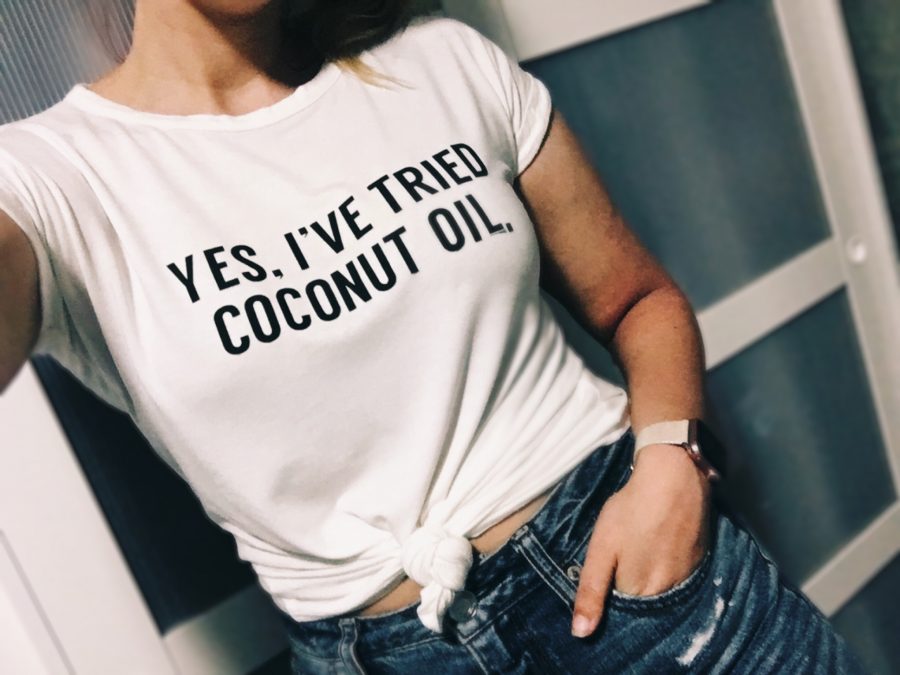How to Tell the Difference Between Nummular Eczema and Ringworm
It’s often difficult to distinguish between nummular eczema and ringworm, so it’s always best to be evaluated by a dermatologist, say experts.

Published On: Oct 7, 2022
Last Updated On: Apr 25, 2024
Can coconut oil really help soothe eczema symptoms, like itchy skin and a damaged skin barrier? The short answer: It depends.
Coconut oil has the natural ability to penetrate the skin quickly and efficiently, which can boost hydration, improve skin elasticity, fight itch and reduce the chances of infection.
“We would absolutely recommend coconut oil for prevention of eczema flares,” said Dr. Jeff Yu, a board certified dermatologist at Massachusetts General Hospital. “Its utility in treating eczema flares is more limited. At best, I think it has a mild anti-inflammatory activity. Therefore, as a moisturizer, it’s great.”
Furthermore, coconut oil contains lauric acid, a nutritious fatty acid, or lipid, also found in breast milk. Lauric acid is used to develop monolaurin, which is an antimicrobial agent that can fight bacteria, fungi, yeast, viruses and other pathogens. It also includes antioxidants which provide an extra boost to the immune system. In other words, when you hear people talk about coconut oil having antimicrobial properties and anti-inflammatory properties beneficial to eczema, they are correct.
“Monolaurin is a fatty acid that has antibacterial properties which may help to limit staphylococcus colonization on eczema skin,” said Dr. Vivian Shi, associate professor in the Department of Dermatology at the University of Arkansas for Medical Sciences. “It also moisturizes the skin to repair the skin barrier.”
A 2018 study found that coconut oil is effective at reducing the presence of bacteria, fungi, viruses and other pathogens when used topically on atopic dermatitis.1
Coconut oil comes in many different forms. Cold-pressed coconut oil and virgin coconut oil are the two recommended types for topical use on skin. Cold-pressed and virgin methods of oil extraction do not use harsh chemicals like some methods do, which could further irritate skin.
Coconut oil can also be an ingredient in soaps, emollients and lotions. Some supplements might also contain coconut oil. When buying coconut oil products, it’s important to look at any other ingredients in the product that could potentially make eczema worse and cause itchy skin.
That’s where the “It depends,” answer comes into play. It’s important to remember that eczema is unique to every individual. While applying coconut oil to eczema skin has been known to help many people prevent flares, coconut oil is also known to trigger an allergic reaction for some people. If you know you are allergic to coconut, opt for another option.
“Coconut oil is more of a daily maintenance modality, and is not great for treating eczema flares,” said Dr. Shi.” Depending on the location and severity, prescription, oral or injectable medications are typically used to treat eczema flares.”
Always consult with your doctor before you use coconut oil or try a new product on your skin.
References:
1. Varma SR, Sivaprakasam TO, Arumugam I, et al. In vitro anti-inflammatory and skin protective properties of Virgin coconut oil. J Tradit Complement Med. 2018;9(1):5-14. Published 2018 Jan 17. doi:10.1016/j.jtcme.2017.06.012